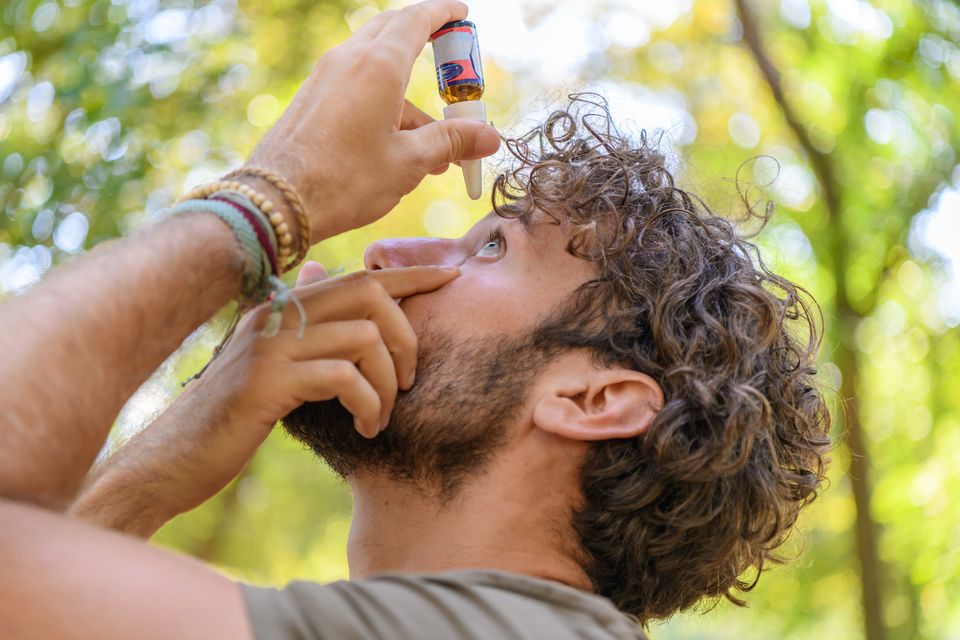More than two dozen over-the-counter eye-drop products marketed under CVS Health Corp.
CVS,
Target Corp.
TGT,
Rite Aid Corp.
RADCQ,
and other brands pose a risk of eye infections that could cause partial vision loss or blindness, the U.S. Food and Drug Administration warned Friday.
Consumers should not buy or use the products, which include lubricating and dry-eye relief drops sold under the Velocity Pharma brand and Cardinal Health Inc.’s
CAH,
Rugby and Leader labels as well as CVS Health, Rite Aid and Target Up&Up brands, the FDA said.
FDA’s investigators found unsanitary conditions in the facility that manufactures the products, and bacteria was detected in critical drug-production areas of the facility, the agency said. The FDA said it recommended last week that the manufacturer recall all lots of the affected products.
The new FDA warning is just the latest in a series of eye-product safety issues the regulator has raised this year. The agency last month warned CVS and Walgreens Boots Alliance Inc.
WBA,
about marketing unapproved eye products and raised concerns about the manufacturing practices of contract manufacturers producing the products. Several other brands recalled batches of eye drops earlier this year due to concerns about dangerous infections. The U.S. Centers for Disease Control and Prevention and the FDA early this year investigated a multi-state outbreak of drug-resistant bacteria associated with artificial tears products.
The FDA did not specify which bacteria it found in its latest warning, but the severity of the earlier outbreak prompted “increased scrutiny from FDA regarding manufacturing of eye drops,” said Patricia Jackson, president of the Association for Professionals in Infection Control and Epidemiology and an infection preventionist in the Dallas area. “So they’re proactively going out and visiting manufacturing sites and testing products and unfortunately finding additional brands that have potential contamination.”
Roughly 120 million people in the U.S. use eye drops or eye wash, according to market research firm Statista. Eye products can pose a particular risk to users because drugs applied to the eyes can bypass some of the body’s natural defenses, the FDA said. The regulator said Friday that consumers should properly dispose of the affected eye products, such as by dropping them at a drug take-back location.
People who have symptoms of an eye infection after using any of the affected products should talk to their doctor or get medical care immediately, the FDA said. Consumers should watch for symptoms such as eye pain, light sensitivity, sudden blurred vision, redness, discharge and swelling, Jackson said.
The FDA said it has not received any reports of eye infections linked with the products.
CVS, Target and Rite Aid are removing the products included in its latest warning from their retail stores and websites, the agency said, but products branded as Leader, Rugby and Velocity may still be available to purchase.
Cardinal Health said in a statement that after receiving FDA notification of the eye infection risk, it placed all the affected eye drop products in its inventory on hold and contacted the supplier, Velocity Pharma. “We are in the process of working with Velocity Pharma and FDA to initiate a recall of all impacted Rugby Laboratories and Cardinal Health Leader branded eye products to further safeguard public health and safety,” the company said. Cardinal Health also said it is working with Velocity Pharma to gain insight into the unsanitary manufacturing conditions identified by the FDA.
Velocity Pharma did not immediately respond to a request for comment.
CVS Health said in a statement to MarketWatch that the company immediately stopped the sale in-store and online of all CVS Health brand eye products supplied by Velocity Pharma, and customers who bought those products can return them for a full refund. CVS is “fully cooperating with the FDA on this matter,” the company said.
Rite Aid said in a statement that it is removing the affected Rite Aid branded products from store shelves.
Read the full article here







